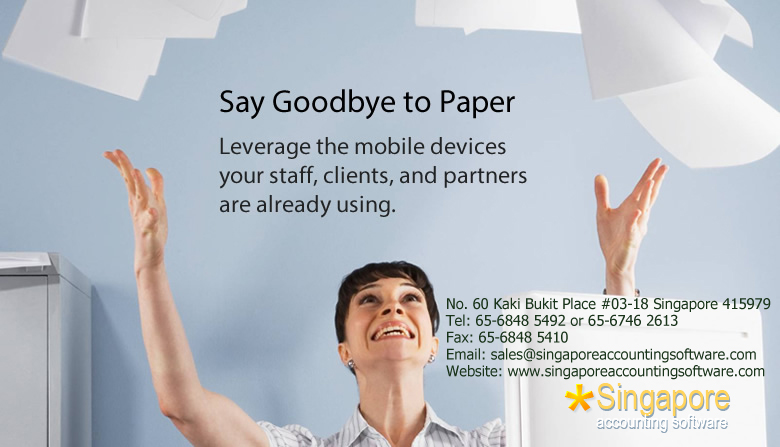
Say Goodbye to Papers
If you entered the accounting profession 10 to 15 years ago, you were taking a job in a business that had been transformed by the arrival of accounting software. At the enterprise level, this meant working with major ERP systems like SAP, Oracle, Salesforce and others. Smaller businesses were working with simpler but still very effective software like QuickBooks. The ubiquitous double-ledger paper that had dominated accounting departments for generations had seemingly been banished.
Still, the paper mind-set endured, despite the ever-present nature of accounting software. The pages were simply transformed into electronic format – first on floppy disks, later as email attachments. Accountants still labored to gather, compile and sort data, which was then circulated to other parts of the business. Even as things changed, they stayed the same.
All that is about to change. For an eager young CPA getting ready to set up their career in accounting, they have to prepare for a new feature of the accounting department: robots.
Before you crack a joke about how accountants were always automatons, the robots in question aren’t physical – they’re software. And their impact is becoming more and more profound. Today, the process in many accounting departments is based almost exclusively around human effort. Individuals pull data from different sources within their ERP systems and they produce reports that they pass on to others. As a result, the process is stuck with human limitations, including an error rate that hovers around 10-15 percent, even in the best of circumstances.
At the same time, the demands on accounting departments only grow more onerous. For public companies, accounting departments have to jump through the various hoops created by regulators to ensure a high standard of compliance. The only way to increase the output is with additional human effort – accountants working 80 hours plus a week, and individuals checking and rechecking each other’s work, with little to no true reduction in risk or enhanced controls.
This has opened the door very widely for the introduction of process robotics into the accounting profession. And why? These robots aren’t simply replicating human effort electronically. They’re integrating with the rest of the ERP system to completely automate accounting processes end-to-end, and not just at the user interface (UI). Let’s take one example among many: revenue recognition. As anyone who has sweated to decide if revenue should be recognized, deferred or an expense should be booked, this process is not complex: it’s simply thousands of A/B decisions in a row. The challenge is to ensure accuracy and consistency, and accountants traditionally do an outstanding job. But a software robot can carry out these tasks in a blink of an eye without having to be monitored, and maintain 100 percent accuracy. Another example is account reconciliation: each month most large organizations have at least two hundred people preparing reconciliations. But these same processes could be performed by one robot on a real time basis. This is something a human just can’t accomplish. Why can’t we have a one-button close?
So What’s the Problem?
Typically, at this point we run into two major objections to the thought of a robotic accounting department. Firstly, controllers and chief accounting officers fear a loss of control. They’re used to working with a team, and are concerned that the software process will go awry and they won’t be able to intervene. This concern is overblown. The nature of software robots is they offer multiple points of entry all through any given process. The user can interact with the whole process, or any individual point, yielding a level of control that goes beyond what can ever be achieved working with humans. With standard COSO (Committee of Sponsoring Organizations of the Treadway Commission) controls, the oversight still relies on humans watching humans. Robots perform tasks accurately 100 percent of the time, barring malicious intervention such as hacking or a technology malfunction.
The second concern is existential, and very relevant to anyone embarking on a career: will software robots make accountants themselves obsolete? The answer is an emphatic “no.” Software robots can handle the gathering and processing of information. That still leaves the features that make accounting an attractive proposition: the analysis of information, the insight into how the business is performing, and the guidance that can drive growth and profitability. People used to speak of a triumvirate of doctor, accountant and priest as the three guiding lights in life. Accountants have been buried under information in recent years. With robots they can retake their position at the decision-making table.
What this does mean is that trainee accountants have to orient their education towards this new style profession. That means embracing skills in areas like relational databases and recognizing that even Microsoft Excel is becoming less relevant, as is the necessity to mail such documents from one person to another once their task in a process is complete. In short, the new generation needs to be actively eliminating the work silos that create more problems than they solve.
In 20 years in the industry, the most common complaint I hear from accountants is that they are forced to run too lean. Process robotics is changing this factor for the entire industry, and the pace of innovation has surprised even me. Teams that were once too lean will now find that their day-to-day to-do lists are getting shorter and shorter. This is a chance for accountants to up their relevance – but it will require new skill sets and finally saying goodbye to the paper mind-set.
Source: accountingtoday.com
Visit Us on: www.singaporeaccountingsoftware.com
